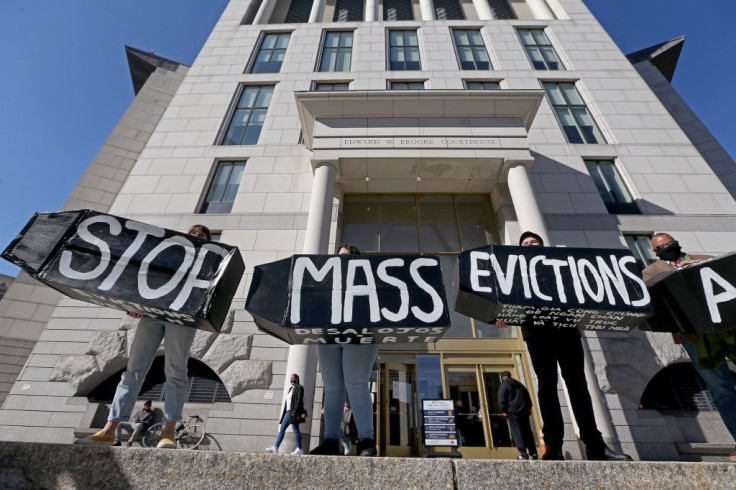These 7 States Are Where Most People Are At Risk After Eviction Moratorium Ends
With the protections of the National eviction Moratorium expiring at midnight, renters around the United States who have had a hard time keeping up with their payments during the COVID-19 Pandemic are fearful about what will happen next—especially those in states where the ratio of rent debt is much higher than in others.
Fears over the ban, which has been in place since 2020, expiring are largely for communities that are disproportionately affected by the hardships of paying rent during the pandemic. CNBC reports that the people most at risk are low-income workers and people of color, many of whom lost their jobs during the health crisis. According to data compiled by the National Equity Atlas, 14% of all renting households are behind on payments, with 63% of those households consisting of people of color and 78% being low-income households making less than $50,000.
Their data also suggests a wide disparity based on regions of the country, with largely Southern states having the highest share of renters with debt. Speaking to CNBC, Aaron Dibner-Dunlap, a senior research scientist at Surgo Ventures, said that it isn’t uncommon for the Southern States to have these higher numbers of affected renters.
“Before the pandemic southern states also had relatively high eviction rates. So housing vulnerability has been a challenge in this region for a number of years,” he said.
According to further data from CNBC, the states with the highest percentage of renters with rental debt are in Mississippi (29%), South Carolina (28%), Georgia (24%), New York and Connecticut (21% each) and Indiana and West Virginia (20%).
Other states with higher percentages included Pennsylvania (19%); Iowa, Maryland, Nebraska and New Jersey (18%); and Alabama, Illinois, Louisiana, New Mexico, North Carolina, Ohio, Oklahoma, Rhode Island, Tennessee and Wyoming (17%).
The states with the lowest amount of renter debt are Colorado, Delaware, Montana and Wisconsin (9%); Kansas, Utah and Vermont (8%); Hawaii (7%) and Idaho (6%).
The moratorium was something that President Biden did seek to have extended, but after the Supreme Court ruled that it could not be extended past July without action from Congress, the aide was set to run out.

© Copyright IBTimes 2025. All rights reserved.





















